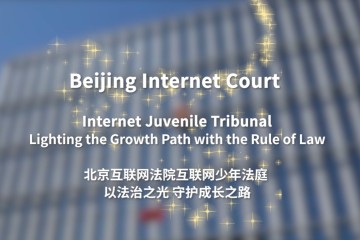BIC judges give tips on consumer rights protection on non-delivery cases
In conjunction with World Consumer Rights Day which fell on March 15, judges from the Beijing Internet Court (BIC) were invited to a law-related TV program to offer tips on consumer rights protection based on case studies.
Does the seller commit fraud if it delays delivery for a long time?
At the annual online shopping spree on Nov 11, a consumer surnamed Li purchased some furniture from an online store using the store’s sales coupons and discount policies. After a few weeks, he still couldn’t trace any delivery updates on his purchase. Three months later, Li filed a complaint against the store to the online shopping platform, which responded and gave him some monetary compensation, telling him to continue to expect the delivery. A few more months passed before the store service staff contacted Li and offered a plan for quick delivery, which would result in invalidating all the sales and discount amounts and Li refused to accept.
Eight months had passed and Li finally sued the store in the BIC, requesting it to fulfill its delivery obligation and claiming that the store not only failed the delivery obligation, but also committed fraud and should compensate him in an amount of three times the order price. The BIC's final judgment supported all of Li's requests.
Tips from the judge
Civil fraud refers to the act that one party induces the other party to make wrong declarations of intention by deliberately providing false information or concealing true information. According to China's consumer rights protection law, when the product or service provider commits fraud, it needs to compensate the consumer's loss at the consumer's request, which is calculated at three times the purchase price and a minimum of 500 yuan ($ 78.73).
During the big sales sprees, stores tend to offer big discounts to increase their profiles. But they need to consider their delivery capacity and transaction costs to make sure they can afford the discounts. If they can't deliver as promised due to special circumstances, they need to communicate with the consumers in a proactive manner and seek their understanding. As for consumers, if they spot abnormalities in their order's delivery status, they should query the store in time to avoid miscommunication.
Non-delivery and refund not equivalent to termination of contract
On Jan 27, 2020, a plaintiff surnamed Yang bought a pair of Kobe Bryant (the late NBA player) co-branded basketball shoes from a store on the online shopping platform Taobao. The basketball star’s accidental death on the same day caused a price spike of the shoes. The store owner contacted Yang, requesting him to cancel the order as the store could not get the stock at the original price, and thus could not make the delivery.
However, Yang noticed that the shoes were still on the shelf in the store, but with a higher price, and so denied the request. One year later, the store had still not delivered the shoes. In accordance with Taobao's policy on delivery timeout, the order was automatically closed by the Taobao platform on Jan 27, 2021 and the payment was returned to Yang's account.
Claiming that the transaction contract between Yang and the store was still in place, Yang sued the store in the BIC, requesting that the defendant fulfill its delivery obligations according to the contract. As the payment was already refunded to the plaintiff, the court's final judgment was that the store should perform its delivery obligation after the plaintiff paid for the shoes again.
Tips from the judge
As stipulated in Article 562 of the Civil Code, the parties may terminate the contract upon consensus through consultation. As stipulated in Article 577 of the Civil Code, where a party fails to perform his contractual obligation or his performance does not conform to the agreement, he shall bear default liability such as continuing to perform his obligations, taking remedial measures, or compensating for losses.
There are two ways to terminate a contract: termination by agreement or legal termination. A contract can be terminated with the consent of both parties or if any of the legal scenarios apply. In this case, the two parties didn’t reach an agreement on terminating the contract, and there were no legal justifications to terminate it. Thus, the contract was still valid.
As online shopping getting popular, online shopping platforms tend to formulate their own rules to maintain their business orders, which provides flexibility in response to various situations. But those rules can not overrule the autonomy of will between the parties and related legal provisions.
If a seller refuses to deliver goods, the buyer can actively communicate with the seller to understand why. If the failure of delivery is caused by insufficient inventory or the seller's intention to hoard the goods for a higher price, the buyer can continue to claim performance or look into other remedies for breach of contract. If any loss occurs to the buyer, the buyer can also claim compensation from the seller.
Sellers should also abide by the principle of good faith when selling goods on e-commerce platforms. All product information should be truthful and promises such as delivery time limits should be kept. Meanwhile, sellers should also check their commodity inventory in a timely way to ensure supply and good faith.

 Judicial White Paper
Judicial White Paper
 Play
Play Play
Play Online Lawsuit Guide
Online Lawsuit Guide Beijing Internet Court Lawsuit Service WeChat Account
Beijing Internet Court Lawsuit Service WeChat Account  Beijing Internet Court WeChat Account
Beijing Internet Court WeChat Account